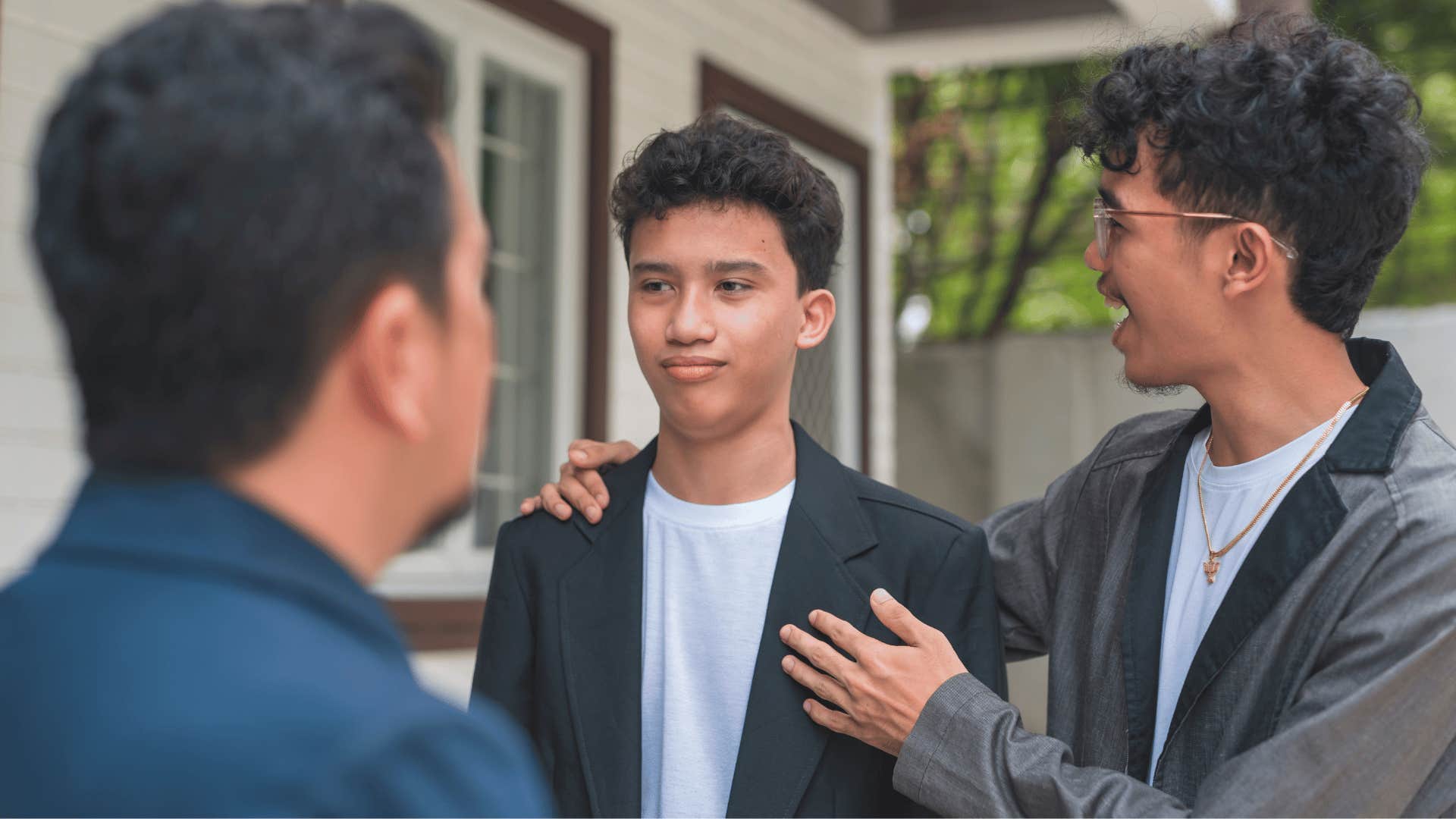8 Subtle Traits Of People With Zero Social Skills
They tend to make social situations a bit... awkward.
 blvdone | Shutterstock
blvdone | Shutterstock Having good social skills is essential in getting anywhere in life. Whether it's moving up the corporate ladder, improving relationships, or trying to make new friends, proper social skills help us develop confidence and build emotional intelligence.
Unfortunately, the subtle traits of people with zero social skills tends to make them stand out. And it can be detrimental to a person's mental health, among many other consequences.
Here are 8 subtle traits of people with zero social skills
1. They refuse to make eye contact
 voronaman | Shutterstock
voronaman | Shutterstock
Not making eye contact with others makes someone look unconfident, fearful, and anxious. And, according to a 2021 study, socially anxious people fear making direct eye contact. Additional research from the Journal of Experimental Social Psychology says that people who possess confident body language (commanding voice, good posture, and expansive body language, for example) are more likely to appear competent compared to others.
People with zero social skills tend to come off as incompetent due to their inability to make and maintain eye contact with others, whether they are a friend or someone they have never met before. It's best for them to work at pushing past their discomfort in social situations and make an effort to look a person in the eye when speaking.
2. They have bad timing
 Miljan Zivkovic | Shutterstock
Miljan Zivkovic | Shutterstock
Timing is important in conversations, as interrupting or talking over others can come off as rude and dismissive. Most people hate being talked over because it can make them feel insignificant or lose their train of thought. Unfortunately, people with poor social skills don't quite understand this and tend to have poor timing, meaning they unintentionally talk over others.
According to Marty Nemko Ph.D., career coach and educational psychologist, interrupting can cause tension and disrupt the flow of information, making someone appear egotistical. And the last thing someone with zero social skills wants is for others to perceive them incorrectly.
So, it's important for these individuals to hold their tongue and allow people to finish speaking before interjecting.
3. They're not good listeners
 BongkarnGraphic | Shutterstock
BongkarnGraphic | Shutterstock
It's a common misconception that good social skills only involve talking, but another essential aspect of this include understanding and listening. But people with zero social skills don't tend to listen to what another person is saying, all because they may find the topic boring or unimportant.
When someone actively shows they're not listening, people assume they don't care. And this can lead to misunderstandings and miscommunications. Research from 2023 found that feeling heard is a crucial part of socialization, so for someone lacking those skills, they may make others feel dismissed.
4. They don't understand sarcasm
 fizkes | Shutterstock
fizkes | Shutterstock
Those who don't understand sarcasm unintentionally make situations awkward. Due to their lack of social skills, the sarcasm is lost on them, leading them to interject and ask uncomfortable questions.
They may ask things like, "What do you mean by that?" as they don't understand that the other person is making comments in jest. Unfortunately, this puts someone in an uncomfortable position where they then have to explain their joke, essentially ruining the humor.
People with zero social skills may make the other person feel bad, wondering if their innocent joke offended someone. Not only do these individuals lack an understanding of satirical wit, they are likely concrete thinkers who are used to analyzing, not joking.
5. They create plenty of awkward silences
 Crime Art | Shutterstock
Crime Art | Shutterstock
Awkward silences are, well... awkward, to say the least. They are incredibly uncomfortable and create tense social situations. But in the eyes of someone with zero social skills who is incredibly socially unaware, they don't quite see a problem with this.
People with no social skills don't understand that long prolonged silence leads to uncertainty on where to take the conversation next. This makes the person they are conversing with feel anxious and unsure.
A study from 2023 determined that while prolonged gaps in conversation are great among friends, it's less than ideal among strangers, who tend to find prolonged silence awkward and are eager to change topics.
People who lack social skills may not feel uncomfortable during those awkward silences, but part of having social awareness is making sure the people around you are at ease. There's nothing wrong with tense silences if socializing breaks up the pauses, but this isn't exactly a skill that can be learned overnight.
It's best for people with zero social skills to politely walk away from the conversation in cases like this.
6. They lack basic etiquette
 MDV Edwards | Shutterstock
MDV Edwards | Shutterstock
There are certain unspoken rules of social etiquette. For instance, shake someone's hand and introduce yourself, or smile and make direct eye contact. But people with zero social skills don't understand these rules, nor do they have proper manners.
Instead of politely introducing themselves, they might go right into a conversation, with no preamble or introduction. They may also interrupt someone speaking, interject with rude comments, or derail a conversation for no apparent reason.
Understandably, this can throw people off and make them uncomfortable, causing them to perceive the person who lacks social skills to be someone who is rude and classless. For the person with no social skills, their first impression comes off poorly, which can affect their ability to make friends.
7. They struggle to show empathy
 Pheelings media | Shutterstock
Pheelings media | Shutterstock
People with zero social skills don't know how to respond when they're met with emotions. They're unsure how to comfort others, and due to their discomfort, don't show empathy toward others.
While they don't necessarily do this on purpose, lacking empathy can make a person come off as cold and uncaring. It can also make other people feel dismissed, and that their emotional well-being isn't a priority.
For people witnessing the lack of empathy, it shows a clear sign of disconnect and feelings of rejection, which brings forth feelings of hurt.
8. They overshare
 Josep Suria | Shutterstock
Josep Suria | Shutterstock
People with social skills don't want to scare others away or make them feel uncomfortable, but that's exactly what someone who lacks social skills does when choosing to overshare instead of keeping it surface-level. It's not just uncomfortable for bystanders, but perplexing as well.
Most people don't like vulnerability, or talking about their feelings or trauma with those closest to them, let alone a stranger. Yet when someone who doesn't understand social cues overshares, it makes the other person feel like they have to open up, even if they don't want to. This puts them in an awkward position where they're not sure if they should be vulnerable to comfort that person, or switch topics altogether.
The traits of people with zero social skills are a bit obvious, but one thing is clear: they don't exactly make good impressions in social situations. It's best for these individuals to keep their socialization to basic, surface-level interactions, learning proper cues along the way.
Marielisa Reyes is a writer with a bachelor's in psychology who covers self-help, relationships, career, family, and astrology topics.
